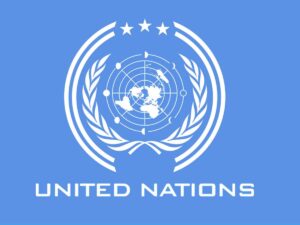A group of United Nations (UN) human rights experts have called on all States to impose a global moratorium on the sale and transfer of surveillance technology until they have put in place robust regulations that guarantee its use in compliance with international human rights standards.
The experts warned in their joint response to recent revelations on the indiscriminate sale and transfer of surveillance technology around the world that “It is highly dangerous and irresponsible to allow the surveillance technology and trade sector to operate as a human rights-free zone.”
The experts are Ms. Irene Khan, the Special Rapporteur on the promotion and protection of the right to freedom of expression; Ms. Mary Lawlor, the Special Rapporteur on the situation of human rights defenders; Mr. Clement Nyaletsossi Voulé, the Special Rapporteur on the rights to freedom of peaceful assembly and of association; and the UN Working Group on the issue of human rights and transnational corporations and other business enterprises, known as the Working Group on Business and Human Rights, represented by Mr. Surya Deva, its Chairperson, Ms. Elzbieta Karska, the Vice-Chairperson, and three members, Mr. Githu Muigai, Mr. Dante Pesce, and Ms. Anita Ramasastry.
The Special Rapporteurs and Independent Experts are part of what is known as the Special Procedures of the UN Human Rights Council.
Special Procedures, the largest body of independent experts in the UN Human Rights system, is the general name of the Council’s independent fact-finding and monitoring mechanisms that address either specific country situations or thematic issues in all parts of the world. The Special Procedures experts work on a voluntary basis, are not UN staff, are independent of any government or organisation and serve in their individual capacity.
“We are deeply concerned that highly sophisticated intrusive tools are being used to monitor, intimidate and silence human rights defenders, journalists and political opponents,” the experts said, adding that: “Such practices violate the rights to freedom of expression, privacy and liberty, possibly endanger the lives of hundreds of individuals, imperil media freedom, and undermine democracy, peace, security and international cooperation.”
Two years ago the then UN Special Rapporteur on Freedom of Opinion and Expression published a report on the dangerous impact of surveillance technology on human rights and recommended an immediate moratorium on its sale and transfer until international regulations incorporating human rights safeguards were adopted. The international community failed to heed his call.
On July 18, 2021, Forbidden Stories and Amnesty International exposed the widespread surveillance of the mobile devices of hundreds of journalists, human rights defenders and political leaders, using the NSO Group’s Pegasus spyware. The NSO Group promptly rejected allegations concerning its involvement in these unlawful practices.
However, the experts contended that “Given the extraordinary audacity and contempt for human rights that such widespread surveillance shows, if the denial of collusion by the NSO Group is to have any credibility at all, the company must disclose whether or not it ever conducted any meaningful human rights due diligence in line the UN Guiding Principles on Business and Human Rights and publish fully the findings of any internal probes it may have undertaken on this issue.”
They said: “We also urge Israel, as the NSO Group’s home country, to disclose fully what measures it took to review NSO export transactions in light of its own human rights obligations,” adding that “It is the duty of States to verify that companies like the NSO Group do not sell or transfer technology to or contract with States and entities that are like to use them to violate human rights.”
According to them, “In recent years we have repeatedly raised the alarm about the danger that surveillance technology poses to human rights. Once again, we urge the international community to develop a robust regulatory framework to prevent, mitigate and redress the negative human rights impact of surveillance technology and pending that, to adopt a moratorium on its sale and transfer.”
The UN human rights experts said they were in direct communication with the government of Israel and the NSO group, noting that “International human rights law requires all States to adopt robust domestic legal safeguards to protect individuals from unlawful surveillance, invasion of their privacy or threats to their freedom of expression, assembly and association.”







